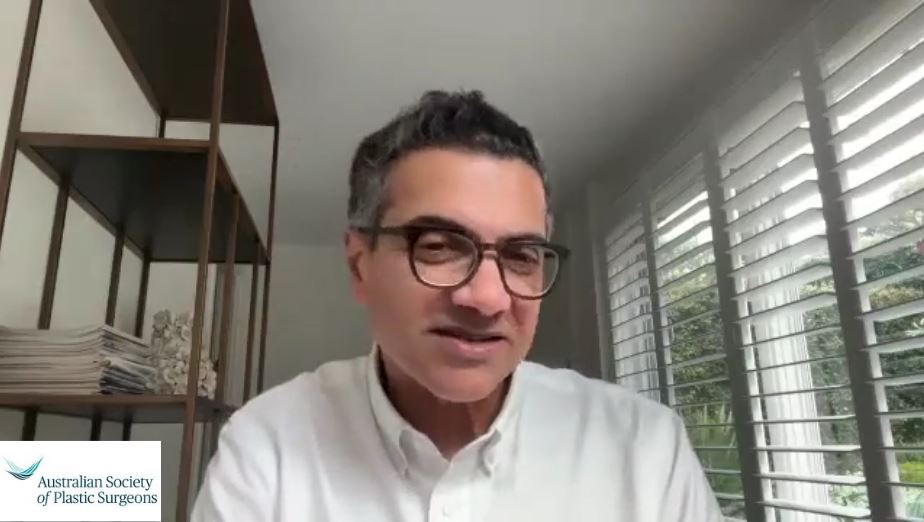Procedures
Tissue Expansion
- About Your Specialist Plastic Surgeon
- Cosmetic
- Non-surgical Procedures
- Plastic Surgery Glossary
- Questions for Your Surgeon
- Reconstructive
- Surgical Procedures
- Abdominoplasty (cosmetic)
- Abdominoplasty (muscle repair postpartum)
- Arm Lift
- Body Contouring
- Body Lift
- Breast Asymmetry Correction
- Breast Augmentation (implants)
- Breast Implants with Lift
- Breast Lift
- Breast Reconstruction
- Breast Reduction
- Brow Lift
- Burns and Scarring
- Chest Surgery
- Chin Surgery
- Cleft Lip & Palate
- Ear Surgery
- Eyelid Reduction Surgery
- Facelift Surgery
- Facial Implants
- Facial Procedures
- Fat Injection
- Genital Reconfiguration Surgery
- Gluteal Augmentation or Buttocks Lift
- Gynaecomastia (male breast reduction)
- Hair Replacement Surgery
- Hand Surgery
- Labiaplasty
- Liposuction
- Lymphoedema Surgery
- Nipple Enhancement for Inverted Nipples
- Nose Surgery
- Scar Revision
- Skin Cancer
- Thigh Lift
- Tissue Expansion
- Voice Surgery
Tissue Expansion
Any surgical or invasive procedure carries risks. Before proceeding, you should seek a second opinion from an appropriately qualified health practitioner.
Tissue expansion is a procedure that enables the body to “grow” extra skin for use in reconstructing almost any part of the body. Tissue expansion is most commonly used for breast reconstruction following breast removal, but it is also used to repair skin damaged by birth defects, accidents or surgery, and in certain cosmetic procedures.
Tissue expansion cultivates extra skin on a part of the body that is later used as part of surgery. A silicone balloon expander is inserted under the skin near the area to be repaired and then gradually filled with salt water over time, causing the skin to stretch and grow.
Tissue expansion is a highly individualised procedure and may not be suitable for everyone. Always talk to your Specialist Plastic Surgeon before making a decision. Your Specialist Plastic Surgeon will assess your condition and general health, and plan the treatment that is best suited to you.
Before you decide on tissue expansion, there are some important issues to keep in mind:
- Expansion may be more difficult on the back, torso, or other areas where skin is thick
- If the affected area is severely damaged or scarred, expansion is probably not an option, since healthy skin is the first requirement
- The length of time required to grow additional skin may vary and can take as long as three to four months. During this time, the expander creates what can be an unsightly bulge
- The procedure requires repeated visits to the surgeon for injection of the salt water that inflates the balloon. This may be an inconvenience for some people
Tissue expansion has certain advantages including:
- A near-perfect match of colour, texture, and hair-bearing qualities
- Reduced risk of losing the skin and tissue as the skin remains connected to the donor area’s blood and nerve supply
- Less apparent scarring as the skin doesn’t have to be moved from one area to another
During your initial consultation, your Specialist Plastic Surgeon will evaluate your condition to determine whether you will benefit from tissue expansion. Your age, skin condition, medical history and other factors will be taken into consideration. Your flexibility and tolerance for the inconvenience associated with this procedure will also help you and your surgeon decide whether the procedure is right for you.
Depending upon the extent of the procedure, your surgeon may use local anaesthesia, combined with a sedative, where you will be awake but drowsy, or general anaesthesia, where you will be asleep throughout the procedure.
Modern anaesthesia is safe and effective, but does have some risks. Ask your Specialist Plastic Surgeon and anaesthetist for more information. Your surgeon and/or anaesthetist will ask you about all the medications you are taking or have taken, and any allergies you may have. Make sure you have an up to date list before the surgery.
Modern surgery is generally safe but does have the potential for risks and complications to occur. The most common concern is that the silicone expander used in the procedure will break or leak while it is in the body. While expanders are rigorously tested and placed with care, leaks do occur. If the expander should leak, the salt-water solution, also known as saline, used to fill the expander is harmlessly absorbed by your system and the expander is replaced in a relatively minor surgical procedure.
A small percentage of patients develop an infection around the expander. While this may occur at any time, it’s most often seen within a few weeks after the expander is inserted. In some cases, the expander may need to be removed for several months until the infection clears. A new expander can then be inserted.
Most tissue expansion procedures are done in accredited day surgeries. However, the size and location of the expansion, may require a short hospital stay.
Before undergoing surgery, it is important that you:
- Be as fit as possible to help the recovery process
- Reach your optimal weight
- Check with your surgeon about your medications as some may need to be stopped
- Stop smoking
You will also be asked to provide a complete medical history for your Specialist Plastic Surgeon including any health problems you have had, any medication you are taking or have taken, and any allergies you may have.
You may be advised to stop taking certain medicines such as non-steroidal anti-inflammatory drugs (NSAIDs), aspirin, and medicines that contain aspirin. You may also be asked to stop taking naturopathic substances such as garlic, ginkgo, ginseng and St John’s Wort as they may affect clotting and anaesthesia. Always tell your surgeon EVERYTHING you are taking.
You may be given medicines to take before the surgery, such as antibiotics.
Your surgeon will also advise you if any other tests are required, such as blood tests, X-ray examinations or an Electrocardiograph (ECG) to assess your heart
Prepare a “recovery area” in your home. This may include pillows, ice packs, a thermometer and a telephone within easy reach. Make sure you arrange for a relative or friend to drive you to and from the hospital or clinic. Someone should also stay with you for at least 24 hours after you return home.
Your surgeon should give detailed preoperative instructions. Follow them carefully.
How you feel after surgery depends on the extent and complexity of the procedure. The initial surgery to insert the expander causes most patients only temporary discomfort. Your Specialist Plastic Surgeon will prescribe medication if required.
You may feel some minor discomfort each time saline is injected into the expander, but this usually lasts only an hour or two. The follow-up procedure to remove the expander and put the new tissue in place may create some temporary discomfort, but this, too, can be controlled with medication.
How soon you resume your normal routine depends on the length, complexity and type of surgery you have had. Most tissue expansion patients find they can keep up with their normal routine while the expander is in place.
If you experience any of the following symptoms, notify your surgeon immediately:
- Temperature higher than 38ºC or chills
- Heavy bleeding from the incisions
- Leakage of blood or fluid beyond the first day after surgery
- Worsening and/or spreading redness around the incision sites
- Any other concerns or problems regarding your surgery, particularly if it appears to be worsening
Your surgeon will give you specific instructions on post-operative care. These instructions may include:
- How to care for your surgical site(s) following surgery
- Medications to apply or take orally to aid healing and reduce the risk of infection
- Specific concerns to look for at the surgical site(s) or in your general health
- When to follow-up with your surgeon
Be sure to ask your surgeon specific questions about what you can expect during your individual recovery period, such as:
- Where will I be taken after my surgery is complete?
- What medication will I be given or prescribed after surgery?
- Will I have dressings/bandages after surgery? If so, when will they be removed?
- Are stitches removed? When have they/will they be removed?
- When can I resume normal activity and exercise?
- When do I return for follow-up care?
Scars are an inevitable part of any invasive surgery. Your Specialist Plastic Surgeon will endeavour to minimise scarring and to keep your scars as inconspicuous as possible by locating the incisions in easily hidden sites. That way, scars will be along natural skin lines and creases. Scars may fade with time and become barely noticeable. If you are prone to scarring, you should advise your surgeon.
Tissue expansion is performed to prepare skin for further surgery. If the tissue expander breaks or becomes infected when it is inside the body, the expander may need to be removed while the infection has time to clear. A new expander may then be inserted.
Cost is always a consideration in elective surgery. Prices for a tummy tuck can vary widely between Specialist Plastic Surgeons. Some factors that may influence the cost include the surgeon’s experience, the type of procedure used and the geographic location of the office.
Costs associated with the procedure may include:
- Surgeon’s fee
- Hospital or surgical facility costs
- Anaesthesia fees
- Prescriptions for medication
- Post-surgery garments
- Medical tests
Your surgeon should welcome any questions you may have regarding fees.
Donor site:
An area of your body where the surgeon harvests skin, muscle and fat for reconstructive surgery
General anaesthesia:
Drugs and/or gases used during an operation to relieve pain and alter consciousness
Grafting:
The transfer of skin, bone, nerves, or other tissue from a healthy part of the body to repair the injured part
Intravenous sedation:
Sedatives administered by injection into a vein to help you relax
Local anaesthesia:
A drug injected directly to the site of an incision during an operation to relieve pain
Sutures:
Stitches used by surgeons to hold skin and tissue together
Visit the Plastic Surgery Glossary for more medical terms.
This website is intended to provide you with general information only. This information is not a substitute for advice from your Specialist Plastic Surgeon and does not contain all the known facts about this procedure or every possible side effect of surgery. It is important that you speak to your surgeon before deciding to undergo surgery. If you are not sure about the benefits, risks and limitations of treatment, or anything else relating to your procedure, ask your surgeon to explain. Patient information provided as part of this website is evidence-based, and sourced from a range of reputable information providers including the American Society of Plastic Surgeons, Better Health Channel and Mi-tec medical publishing.
Featured Stories

ASPS welcomes new Ahpra guidelines for Non-Surgical Cosmetic Practitioners
Sydney. June 3, 2025: The Australian Society of Plastic Surgeons…
Continue reading
